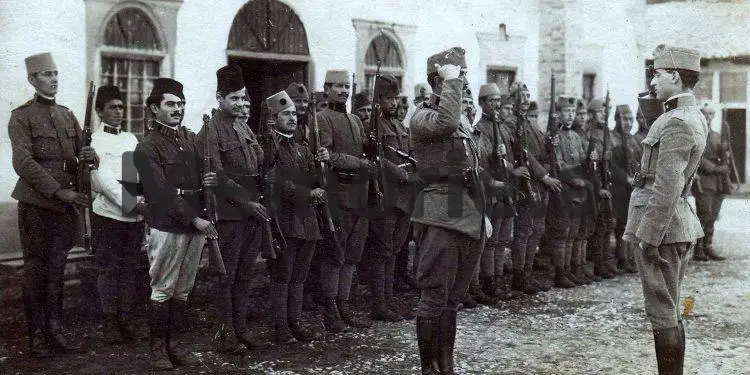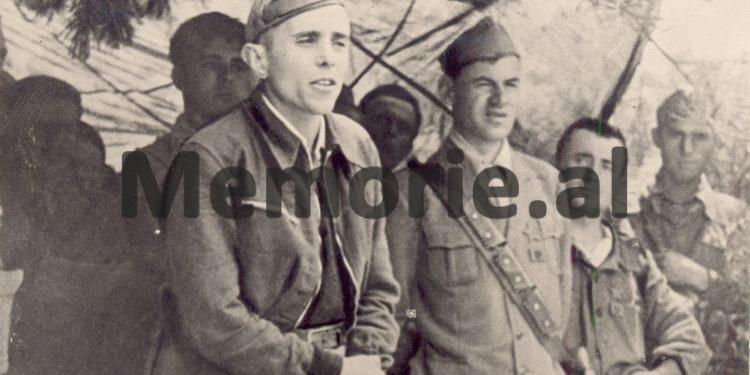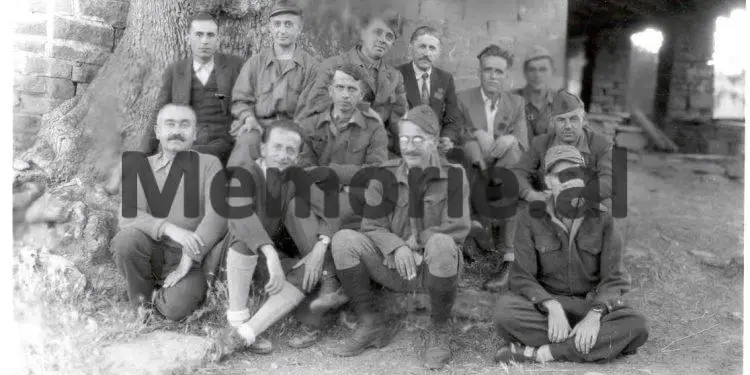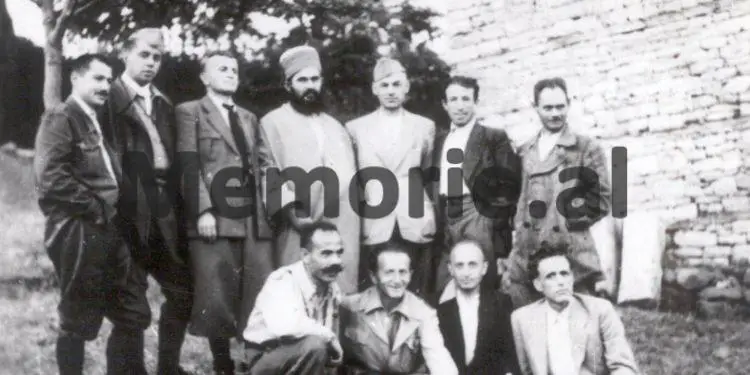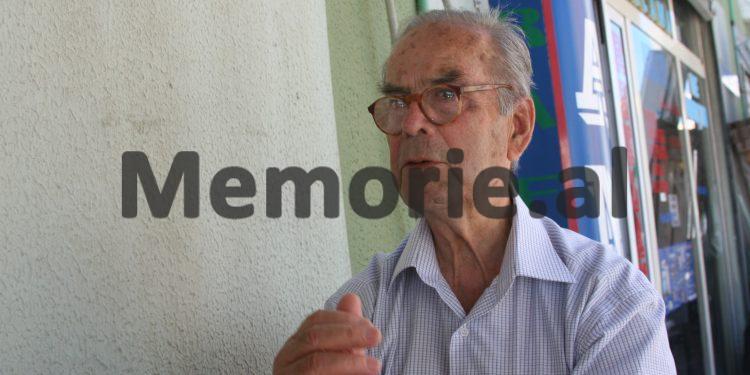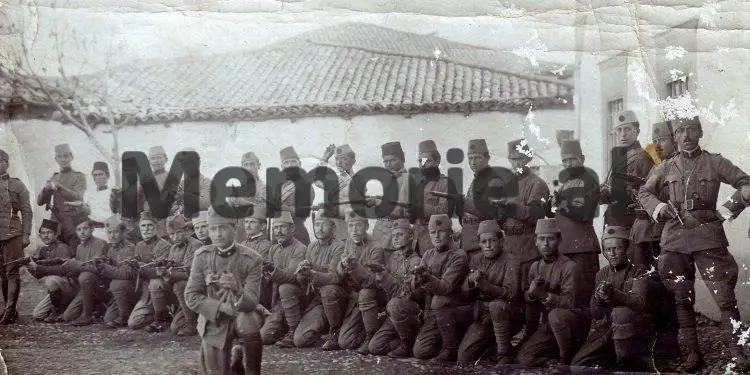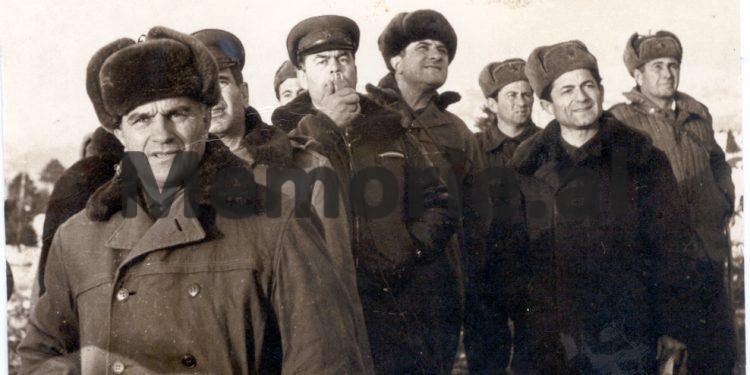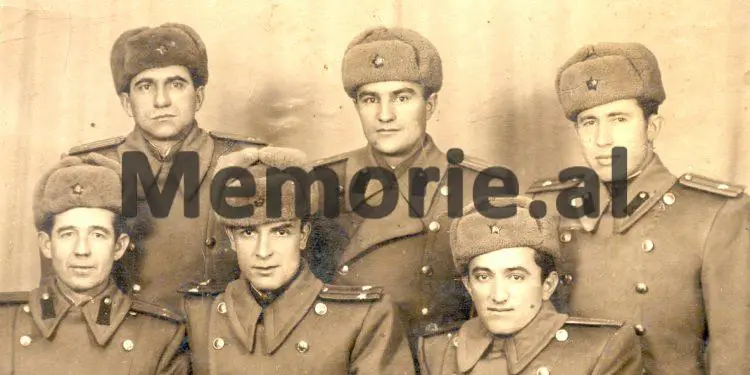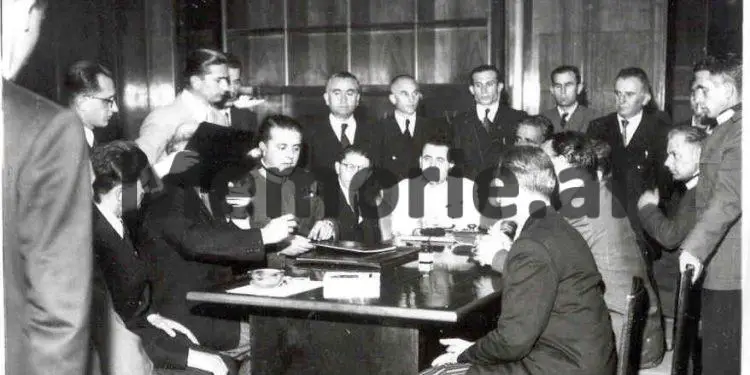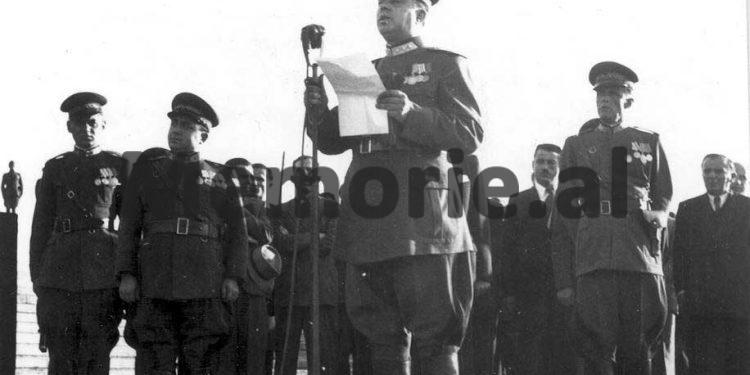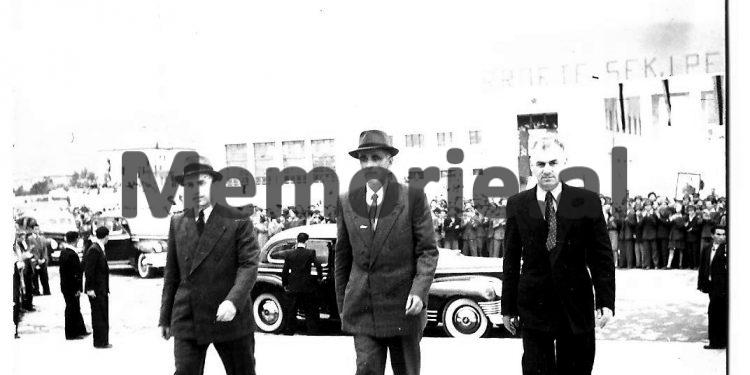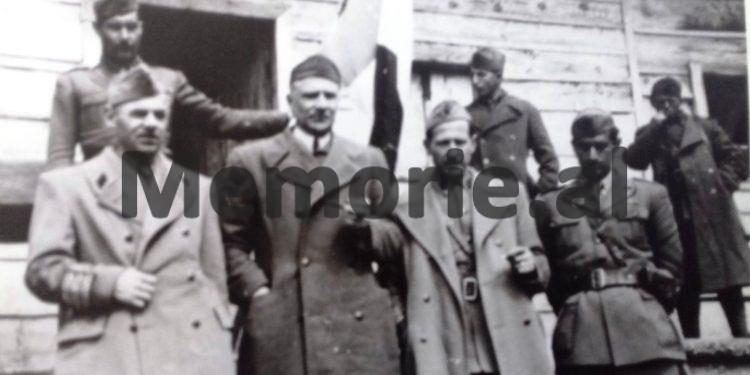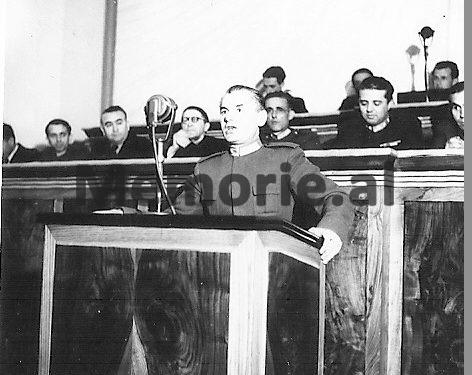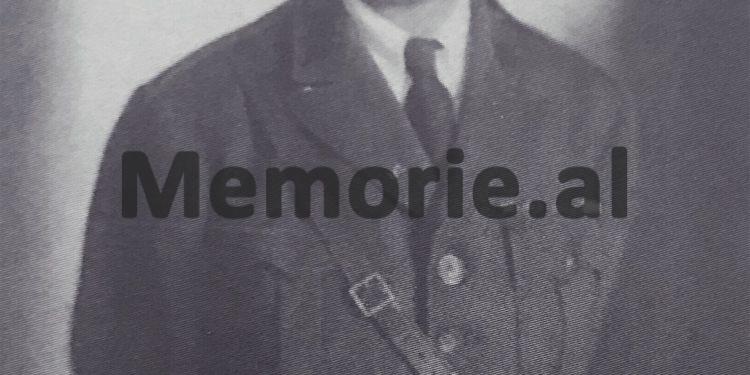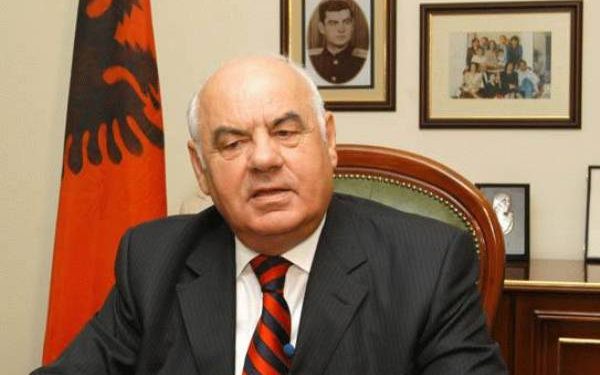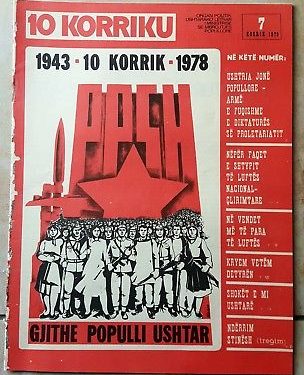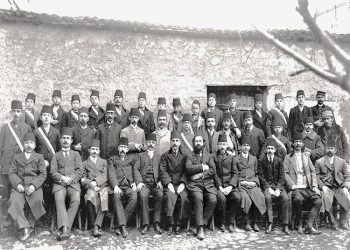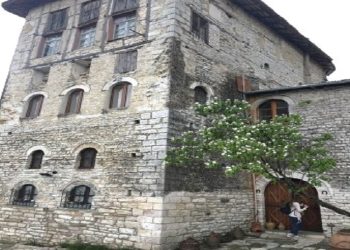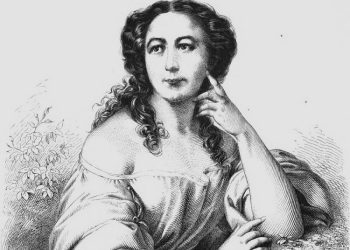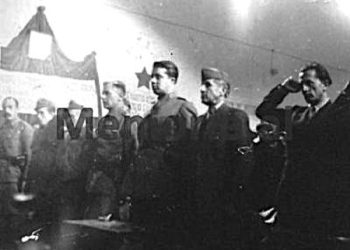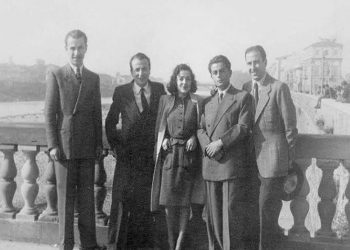Dashnor Kaloçi
Memorie.al publishes the unknown story of Spiro Moisiu, the former career soldier who, although in the “June Revolution” had participated in the ranks of fan forces alongside Colonels Kasem Qafzezi and Rexhep Shala who marched towards Tirana and overthrew the government, Prime Minister Ahmet Zogu called him back to give his contribution to the ranks of the National Army of the Monarchy, where he served faithfully in all the tasks assigned to him until April 1939 when he attempted to organize resistance against Italian fascist aggression. The removal of Major Spiro Moisu from the Italian-Greek war front together with the “Tomorri” Battalion he commanded and the death sentence by the Italian Military Court, which later commuted his sentence. Why did Major Moisiu accept the offer of the top leaders of the Communist Party to take over the leadership of the National Liberation Army and his conflicts with Enver Hoxha after the end of the War, after he did not accept the assistance of the Yugoslavs in the Albanian Army, and how “Implicated with the Group of Deputies”, he was released at the age of 47 and then left in honorary positions, until his death in 1980.
It was July 10, 1978, when in the “Palace of Brigades” while waiting for the arrival of the senior leadership of the Labor Party to attend the grand jubilee celebrations of the 35th anniversary of the National Liberation Army, someone was recalled that in the official protocol was forgotten and missing one of the main names that was to be present at that ceremony. Shortly after the main door of the “Palace of Brigades”, a luxury car came out which, after speeding through the main boulevard of Tirana, “Dëshmorët e Kombit”, stopped in front of an old villa on “Fortuzi” Street. The person who got out of the car after knocking several times on the door of the house, addressed those who opened the door, saying: “Is Comrade Spiro here, because the Commander, Comrade Enver, is looking for him to come to the anniversary ceremony of the Army ”? Those who opened the door of the villa were very embarrassed because they did not know where to find their head of the family, who had left the house early in the morning. While in the “Palace of Brigades” everything was ready and all the high personalities of the Party and the state, as well as the other guests had occupied the seats assigned by the holiday commission and only the arrival of the Commander, Enver Hoxha, the luxury car was expected of the Central Committee with the family of the villa continued to search in the premises of Tirana, the former Commander-in-Chief of the National Liberation Army, Major General Spiro Moisiu! When they had almost lost all hope that they could find the man they were looking for, someone remembered to look at one of the suburban bars he had recently started frequenting. And they were not wrong, as the car braked abruptly at the door of the bar, the unknown person quickly got down and after approaching a table where four elderly men were drinking, addressed one of them, saying: “Me “Excuse me, Comrade Spiro, the Commander, Comrade Enver, asks you to come to the Army Jubilee.” The former Commander-in-Chief of the Albanian partisans, raised the small glass of brandy and after touching it with his three friends, former partisans, replied to the newcomer: “Yes…, we are also celebrating July 10… “. But who was Spiro Moisiu, what was the origin of his family and where was he educated? What was his military career, how was he elected head of the National Liberation Army and why after the end of the War did he clash with Enver Hoxha? How and why did Enver remove the famous commander of the partisan army, retiring him at the age of 47, to then leave him in honorary positions ?! Regarding this and other facts and events from the life and military career of Major General Spiro Moisiu, we are known in this article for which we are based on the testimonies of some of the people who knew the former commander of the Albanian partisans closely.
Who was Spiro Moisiu?
Spiro was born in 1900 in the small town of Kavaja to the well-known Moisive family from where the great world-famous actor, Aleksandër Moisiu, came from. Spiro was orphaned at a very young age, after his father was killed in 1913, by rebel forces seeking the overthrow of the Vlora government led by Ismail Qemali. After graduating from the unique school in the cities of Kavaja and Durrës, Spiro was sent to attend the gymnasium in the Austrian capital, Vienna. After returning from Austria, in 1918-19, he completed a course of several months at the Officers’ Training School in Tirana, which at that time was run by German and Austrian instructors, where he received the rank of lieutenant. A year later, Spiro Moisiu joined the government forces assigned to the defense of the Lushnja Congress, and in the same year he was appointed chief of staff of the group in the fighting in Captain Martanesh against Serbian forces. . In 1923, he completed in Tirana another one-year course of officers, which at that time was led by the German military, where he received the rank of lieutenant. In the June Uprising of 1924, Spiro sided with the military commanded by Colonels Rexhep Shala and Kasëm Qafzezi, who joined the Fanolist forces. Also in December 1924, Spiro Moisiu with the rank of lieutenant, participated with the government forces that came out in the Tujan Stairs, to prevent the return of Zog to Albania. After Ahmet Zogu came to power, Moisiu did not leave the country like many other fanolists, but he stayed in Albania and benefited from the amnesty that Zogu gave to the majority of those who participated in the June Movement.
Military of the Bird Monarchy
In 1925, given his skills as a highly skilled military man, Prime Minister Ahmet Zogu recalled Lieutenant Spiro Moisiu, again naming him an officer in the National Army. Moisiu’s military career came to a head after the 1929-’30s, when he graduated with honors in Tirana the Officers’ Perfection School run by Italian instructors, where among the 43 participants of that course, he was ranked first by received the rank of captain. Throughout the period of the Zog Monarchy, Moses served as a career soldier in several districts of the country and in 1935 when the Fier Uprising broke out, he found himself in that city alongside officers loyal to the duty and the King, who suppressed that movement. Seeing his rare skills as a soldier (at that time he spoke German, Italian, Greek and Serbian) in 1937-’38 Moses was sent and completed the senior course of senior officers led by the Italian military in Tirana, where he came out again with excellent results and received the rank of major. In April 1939, when Italy carried out the fascist aggression against Albania, Major Spiro Moisiu served as the Border Commander in the Prefecture of Shkodra. In that task, he prepared and organized the forces he commanded to make armed resistance to the Italian military troops, sending them as far as Shengjin. But, seeing how events unfolded and in order not to hand over the soldiers and officers he commanded into the hands of the Italians, Major Moisiu withdrew with them outside the borders of Albania and took refuge in Yugoslavia, where he remained as an emigrant until then. from the beginning of 1940. At that time he returned to Albania, responding to the call to serve again in the ranks of the National Army. In the late 1940s, Major Spiro Moisiu at the head of the Tomorri Battalion was sent to take part in the Italo-Greek war, but he refused to fight and withdrew from the front, together with Major Prenk Përvizi, inciting and desertions in the ranks of Albanian soldiers who were sent to the war front with Greece. After that, he was transferred to a ward in the village of Laç of Kurbini, where he was kept under surveillance until the Italian Supreme Military Court sentenced him to death for desertion from the war front. This sentence was later commuted, because the Italians feared a revolt of the Albanian military who were still serving in their ranks.
Commander-in-Chief of the National Liberation Army
After his release, in the years 1941-’42 Major Spiro Moisiu and his family settled in the areas of Lushnja and Berat, entering into contact with some other former soldiers of the Zog Monarchy, who had started organizing and setting up groups. first partisan. Given his impeccable past and rare skills as a career soldier, in July 1943, the leaders of the Communist Party of Albania and personally Enver Hoxha, called him to Labinot in Elbasan, where they proposed him to the post of Commander General of the National Liberation Army. In this regard, Colonel Edip Ohri, the former Commander-in-Chief of the Albanian Aviation in the years 1951-1975, told us: “Throughout the war, both for us ordinary partisans and for the leading cadres, the name of Major Spiro Moisiu as Commander-in-Chief, became very well known and at that time Enver Hoxha was not known at all. All the instructions and orders of the War, bore only the signature of Major Spiro Moisiu. He had all the merit of organizing the partisan army, gathering around himself former soldiers of the Zog Monarchy, such as Dali Ndreu, Tahir Kadare, Bedri Spahiu, and many others, whom he appointed at the head of large partisan combat formations. Given the great name and fame that Spiro Moisiu had created as Commander-in-Chief, at the Congress of Përmet on May 24, 1944, we all thought that in addition to that task, he would also be elected Prime Minister of the Provisional Government. But in fact the opposite happened, because Enver Hoxha concentrated all the functions in his hands, becoming both Commander and Commissar of the National Liberation Army and left Spiro Moisiu only with the duty of Commander of the General Staff. At that congress, the first rank of major general for the cadres of the National Liberation Army was given to Spiro Moisiu. During the war years, the family of Spiro Moisiu (his wife Aspasia and three children: Alfredi, Arqileja and Jolanda), remained in illegality, taking refuge in Tirana with the family of Sotir Manastirliu and then they were escorted by the Cubans to Arbana. , recalled retired Colonel Edip Ohri, regarding the contribution of Major General Spiro Moisiu in the Anti-Fascist War.
Opposes Enver for the Yugoslavs
After the end of the war in 1945, Enver Hoxha called General Moisiu to his house and in the presence of Koci Xoxa, presented to him his idea, regarding the strengthening and modernization of the Albanian army according to the Yugoslav model, which will was done with the help of Yugoslav military instructors who would come to Albania. General Moisiu opposed Enver’s proposal, saying: “What are we going to learn from the Yugoslavs, we are Kachaks, they are Kachaks, we are partisans, they are partisans. What will we learn from them, nothing… ”After this, the debate escalated and Spiro Moisiu left Enver’s house, leaving him in the company of Koci Xoxa. A few days later, in a letter that Vukmanovi Tem Tempo sent to Josif Broz Tito, he wrote, among other things: “Enver Hoxha has appointed a former major of the Zog Gendarmerie at the head of the General Staff, who has filled the army with officers of the Zogist Monarchy and is against sending our instructors there ”. Regarding this, Colonel Edip Ohri told us: “Major General Spiro Moisiu was right to oppose Enver Hoxha for bringing Yugoslav instructors to Albania, because most of them were UDB agents and had nothing to do with the affairs of army. During the time that Moisiu was in charge of the General Staff, he stood by his idea against the arrival of the Yugoslavs in Albania and he was in favor of relations with the Soviets, which at that time were very advanced. In this context he issued the order and sent us to study in the Academies of the Soviet Union, many officers from different types of weapons. But he did not have the opportunity to complete his plan and ideas for strengthening and modernizing the Albanian army, because in 1946, Enver Hoxha fired him. One of the main reasons for this became the “Group of Deputies” who appeared in court at the time, as during the investigation, one of them had deposited, saying that; ‘For the overthrow of Enver Hoxha’s government, they had Spiro Moisiu with them’. “I do not know how true this was, but it was a fact that Spiro Moisiu had close friendships with some of the main leaders of the ‘Group of Deputies’ who were convicted at the time, such as Shefqet Beja and Enver Sazani”, testified Edip Ohrid, regarding the causes that led to the break-up of Enver with Spiro Moisiu. Although General Moisiu was still in the post of Chief of Staff, on Enver’s special order, he was placed under surveillance by the State Security. Thus, in a letter that the Minister of Interior, Koci Xoxe, sent to the first secretary of the District of Berat in the beginning of 1946, he wrote, among other things: “Tomorrow, Major General Spiro Moisiu will visit your district, urgent measures will be taken and to be monitored as there is a possibility that in the Ardenica forest where he will go hunting, he will meet with Hamit Matjani and his forces. “For everything, act according to our instructions.”
The dismissal and degradation of Moisiu
After several ongoing conflicts Enver had with Chief of General Staff Major General Moisiu, in 1946 he issued a release order and dismissed him, retiring him at the age of 47 years. In his place Enver appointed Mehmet Shehu, whom he urgently summoned from Moscow where he was continuing his studies at the General Staff Academy, and during the handover of office, the keys of the office, Moses threw at Shehu at his feet. In order to denigrate General Moisiu completely, Enver appointed him to the position of the President of the Associations in Assistance of the Army (SHNU) and after a short time he appointed him to the position of the President of the Hunters of Albania. Moisiu remained in this position until 1949, when Enver Hoxha broke with the Yugoslavs and at that time he was forced to call Moisiu back to the Army, but leaving him back in duties without any importance, such as that of the Garrison Commander. of Tirana. In the following years, Enver left General Moisiu in complete oblivion, whose name he removed from the History of Albania and other textbooks that spoke about the History of the Anti-Fascist National Liberation War, (which were compiled under the auspices of the Institute of Marxist-Leninist Studies led by Nexhmije Hoxha), thus acquiring all the merits for leading the Anti-Fascist War. General Moisiu was formally left in the position of deputy and that of member of the Presidium of the People’s Assembly, which at that time had no importance, where he rarely went.
Enver refuses to visit the sick General Moisiu
In the summer of 1980, when Enver Hoxha and his wife Nexhmijen paid a visit to the leadership clinic, where Prime Minister Mehmet Shehu was hospitalized, as they were leaving they heard the groans of an elderly patient coming from a nearby room. After being asked, someone was told that; Comrade Spiro Moisiu, who was lying under the strong fever of death, was also hospitalized and very ill. Even after those words, Enver did not climb the stairs one floor higher, but went in the direction of the elevator to get down where he had come from, telling Nexhmija and those who accompanied him; “We will come next time.” Spiro Moisiu passed away a few days later and at that time all the students of the schools who heard the announcement on Radio-Television were surprised to learn that the Commander-in-Chief of the National Liberation Army that they had learned through the history books, had been alive until that time. How to somehow compensate for the forgetfulness that Enver did to his first commander, Major General Spiro Moisiu, a short time later, he appointed his son, Alfredin, to the position of Deputy Minister of National Defense. But although Alfred Moisiu had twice graduated from the Academies of the Soviet Union and specialized in Korea, France and Switzerland, he was considered one of the most trained soldiers of the Albanian army, in 1982, Enver Hoxha dismissed him again and transferred him to the town of Burrel, where he commanded several soldiers and was regularly monitored by the State Security./Memorie.al




